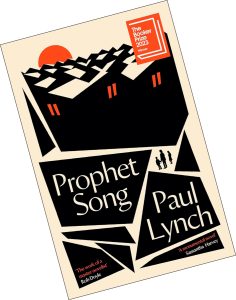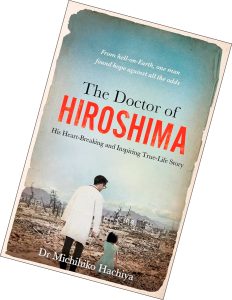The Word from Down Under What’s cooking in the Aussie pot? A look at some dishes.
After a recent stint of travel, I realised once more how important it is for bookstores to focus attention on local authors, especially if identities are not instantly recognisable. Then again, a Chinese-sounding name could belong to Singapore, Taiwan, China, Malaysia… ‘Mohsin Hamid’ could be from India, Pakistan, Bangladesh, the UK… On a visit to Australia recently, I looked desperately for Aussie writers at airport bookshops, but they were lost among the Jojo Moyes, Sophie Kinsellas, Stephen Kings. There were many books by Liane Moriarty, for instance, but I discovered only much later that she was Australian! Richard Flanagan I knew, but Kate Grenville I didn’t. Markus Zusak, yes, but Jane Harper, no. My lack of information, true, no excuses there, but I am sure there are many who are not necessarily bookworms but are interested in picking up books by local authors. Or at least knowing who they are. So, this is my plea to bookstores: please address this issue, in whatever way works for you.
I did manage to buy four books — FOUR! — apart from the one that had travelled from Chennai. This last was Prophet Song by Paul Lynch, a Booker prizewinner and a slow, haunting read. Set in Ireland, it’s a dark, dystopian novel, uniquely different. For one, it has no paragraphs, and thoughts flow in a continuum. It calls for patient and slow reading. Yet, most members of our book club managed not to be deterred by this because the writing and the ideas the writing contains are so compelling. Prophet Song is the story of a family feeling the consequences of the father being taken away by the forces of a fascist government at a time when Ireland is literally falling apart because of the ruling party’s tyranny. As the mother, Eilish, strives to get herself and her family out of this nightmare, the readers feel a sense of dread and déjà vu. As one reviewer wrote, “The genius of this novel is that it makes the impossible possible.” That is a terrifying insight.
The quest for books of Australian origin continued, somewhat sporadically, although the first two picks were of novelists from the general neighbourhood: Before the Coffee Gets Cold by Toshikazu Kawaguchi and The Doctor of Hiroshima by Dr Michihiko Hachiya. The first I haven’t yet read, but am haunted by the first line on the back jacket: ‘If you could go back, who would you want to meet?’ Hmm, who would that be? Do read about this book in one of the upcoming columns. Meanwhile, about the other book. It is based on accounts recorded by a doctor in Hiroshima when the first atom bomb was dropped on it that fateful day, August 6, 1945. Hachiya writes: “The hour was early; the morning still, warm, and beautiful. Shimmering leaves, reflecting sunlight from a cloudless sky, made a pleasant contrast with shadows in my garden as I gazed absently through wide-flung doors opening to the south. … Suddenly, a strong flash of light startled me — and then another. … I remember vividly how a stone lantern in the garden became brilliantly lit and I debated whether this light was caused by a magnesium flare or sparks from a passing trolley.”
Badly injured, Dr Hachiya makes his way to his hospital which soon becomes a harbour of sorts for the injured and the dying. His diary entries unravel the details of how they coped, both hospital staff and the people of Hiroshima, through dedication and hard work and bewilderment, and how this small band of brave souls dealt with unimaginable destruction and loss. The language is straightforward, there’s nothing flowery or poetic expressed about the pain of either physical wounds or innumerable bereavements — events are recorded as they happened and as the people dealt with the unimaginable. The most remarkable thing is that while there is horror, there appears to be no articulation of hatred.
Sydney airport threw up ‘Ozzie’ books, one with the giveaway title, Outback. Where but in Australia do you have the outback?! This quick read by Patricia Wolf finds Detective Sergeant Lucas Walker, on leave in his hometown Caloodie to spend time with his dying grandmother, unofficially having to handle a case involving two missing German backpackers, Berndt and Rita. Set against the drug trade in the region, the matter draws more heat when Rita’s sister Barbara, a detective herself in Berlin, lands up to look for her sibling. Missing persons, murder, mystery all combine with a good dose of outback atmosphere and family relationships to make the book a worthy representative of Australian crime fiction.
But the book that really fascinates is The Wonder of Little Things by Vince Copley, written with his friend, Lee McInerney. Copley was a champion footballer and respected coach, and was committed to improving the lives of his people. The design of the cover clearly establishes the book’s Aboriginal connections with its fine-dotted design. We are familiar with White Australia’s uncomfortable relationship with the Aboriginals, the original inhabitants of that vast continent, and indeed, they were largely invisible in the small parts of Sydney and Cairns that we visited. Copley’s story, based on his experiences growing up nontraditional Aboriginal, is not a litany of woes; it is, as the title suggests, a true account of “hardship, courage and optimism, told without self-pity”. Laconic and gently humorous by turns, Copley opens our eyes to ways of living that privileged folk anywhere in the world could never imagine, even as it helps us connect the dots with the lives of indigenous people everywhere.
I did not realise that the Aboriginals of Australia did not constitute one single mass of people; they comprise several different tribes and groups and include the Torres Strait Islander peoples. White Australia saw them through their own eyes. As Copley writes, they were ‘classified’ into categories: “The ‘full bloods’ were the ‘real Aboriginals’. These were the Aboriginal people who still walked around wearing loincloths and carrying spears and eating witchetty grubs — things like that. Another category they had were ‘half-caste’, where you had a white father or a white mother. They saw that as the half-educated situation. In their minds you were a little bit more capable than the ‘full bloods’ and you’d be able to live in a house and look after it. … We were classed as ‘half-castes’, even though my mum and dad were Aboriginal people and their parents were Aboriginal people. People would say to us, “Oh, you’re part Aboriginal.’ And we’d say, ‘Yeah, well which part?”’
There’s a disarming simplicity about the writing and Copley’s views of the world. For instance, when he was chosen for the state team while at school, he says of his coach/headmaster: ‘I couldn’t repay him for everything by being a brainy person because I wasn’t, but I could repay him every time I went on the football field.’ He believes nothing should stop blackfellas and whitefellas from putting their arms around each other if they are friends: ‘One’s white, one’s black, but you don’t see the skin colour — all you see is a friend.’ When people ask Copley why he isn’t angry, he says: ‘What’s the good of being angry?’ He’d rather not waste his time on a negative emotion. Instead, he pins his faith on young people to ask the right questions. What follows, then, is: Is the world ready for hard questions?
The columnist is a children’s writer and senior journalist



